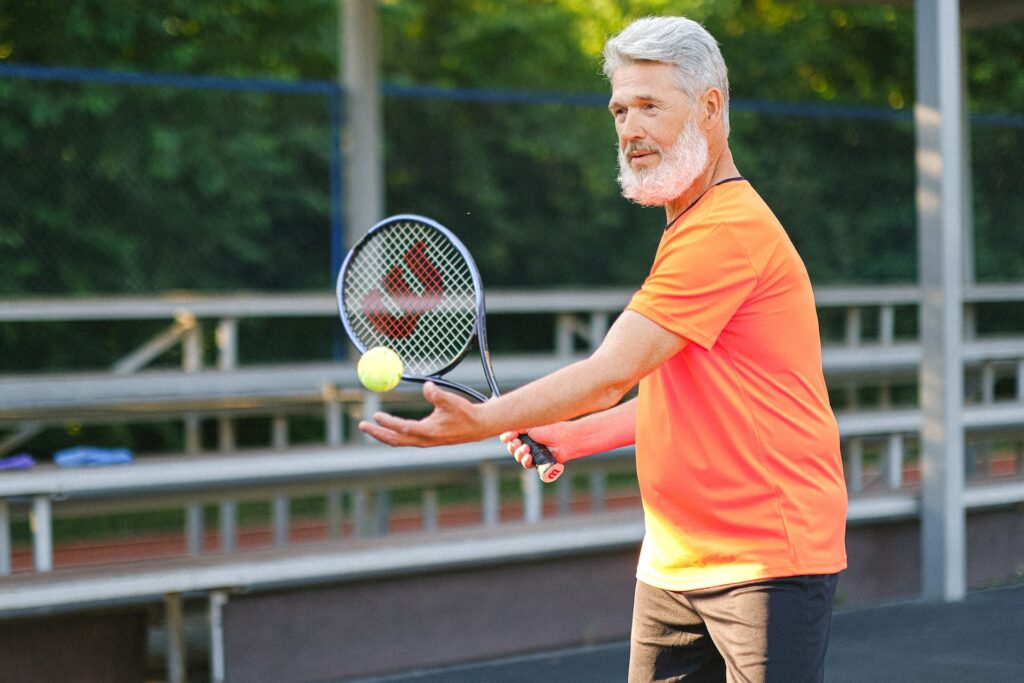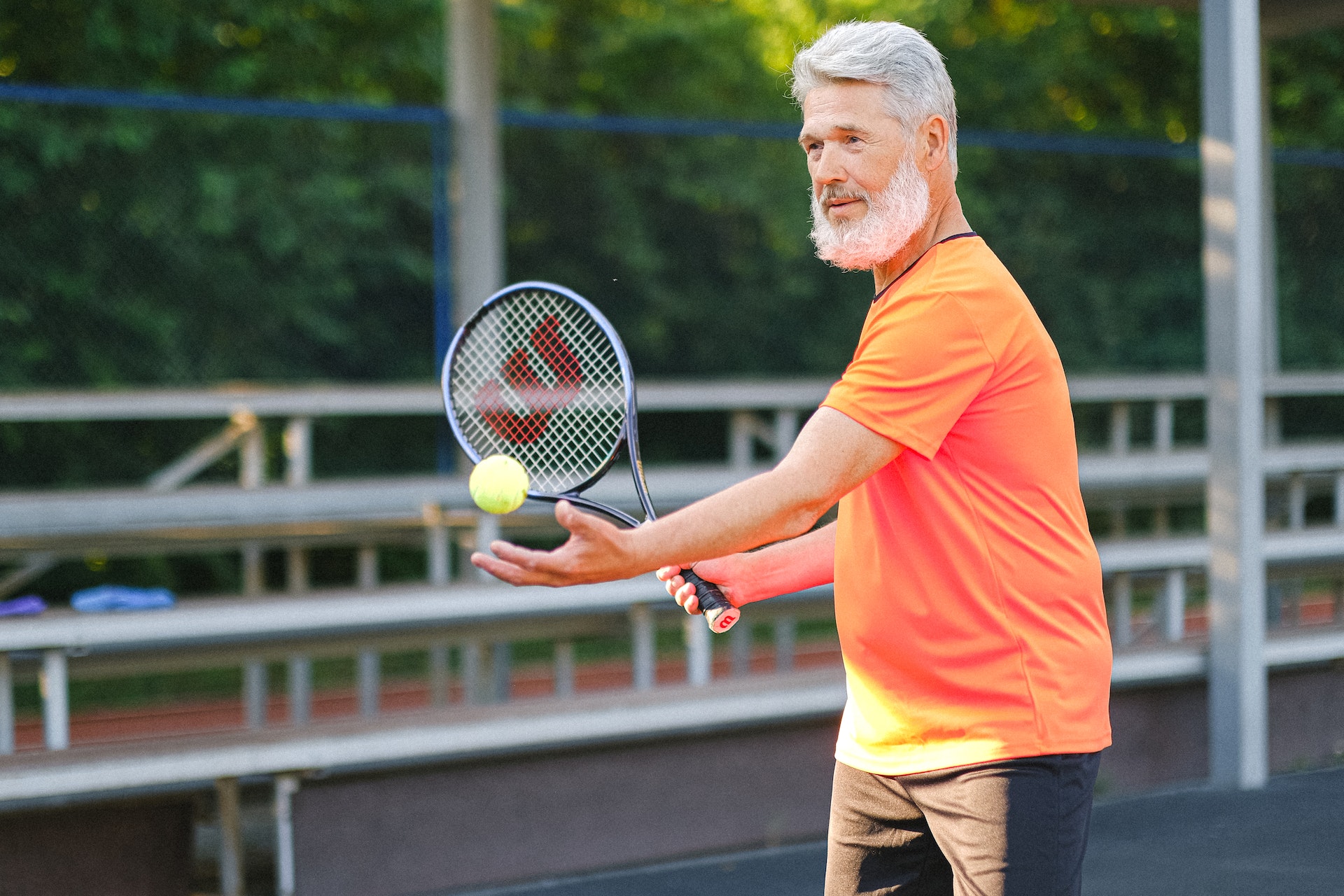Marshall Hubsher, a retired psychiatrist and avid tennis player, is living proof that age is just a number when it comes to staying active and healthy. As we get older, it’s easy to become more sedentary and less interested in physical activity, but tennis is one sport that can keep us fit, engaged, and socially connected. In this article, we’ll explore the many health benefits of tennis for older adults, and why Marshall Hubsher is such a passionate advocate for this fun and challenging sport.

Tennis is a Great Way to Stay Active and Improve Fitness
As we age, our bodies naturally lose muscle mass and bone density, making us more prone to falls and injuries. However, regular exercise can help to slow down this process and keep us strong and agile. Tennis is an excellent form of exercise that combines aerobic activity, strength training, and agility drills. When you play tennis, you’ll be running, jumping, and hitting the ball with your racket, all of which help to improve your cardiovascular health, build muscle, and increase bone density. Plus, tennis is a fun and social sport, which can make it easier to stick to an exercise routine.
Tennis Can Improve Brain Function and Mental Health
Tennis isn’t just good for your body – it’s also good for your brain. Research has shown that playing tennis can improve cognitive function, memory, and focus. When you play tennis, you need to constantly analyze the game, anticipate your opponent’s moves, and make split-second decisions. This kind of mental exercise can help to keep your brain sharp and agile. Plus, tennis is a great way to reduce stress and improve mood. The social and competitive aspects of the sport can be a powerful mood-booster, and the physical activity releases endorphins that can help to reduce anxiety and depression.
Tennis Can Help to Prevent Chronic Health Conditions
One of the biggest health risks for older adults is the development of chronic health conditions, such as diabetes, heart disease, and osteoporosis. However, regular exercise, including tennis, can help to prevent or manage these conditions. Tennis is a weight-bearing exercise, which means it helps to strengthen bones and prevent osteoporosis. It also improves cardiovascular health, which can reduce the risk of heart disease and stroke. Finally, tennis can help to regulate blood sugar levels, which is important for preventing and managing diabetes.
Tennis Can Improve Social Connections and Quality of Life
As we get older, it’s easy to become more isolated and lonely, which can have a negative impact on our mental and physical health. However, playing tennis is a great way to stay connected to others and improve our social connections. Tennis is often played in groups or doubles, which means you’ll have the opportunity to meet new people and make new friends. Plus, the social and competitive aspects of the sport can be a powerful motivator to stay active and engaged.
Marshall Hubsher’s Story: How Tennis has Improved His Health and Quality of Life
Marshall Hubsher is a retired psychiatrist who has been playing tennis for over 50 years. He started playing in college and has continued to play throughout his life. Marshall believes that tennis has been instrumental in keeping him healthy and active as he’s aged. “Tennis has given me a reason to get up in the morning,” he says. “It’s a great way to stay active, engaged, and social.”
Marshall has experienced many of the health benefits of tennis firsthand. He says that playing tennis has helped him to maintain his strength and agility, even as he’s gotten older. “I feel stronger and more flexible than many of my peers who don’t exercise regularly,” he says. “Tennis has kept me physically fit and mentally sharp.”
In addition to the physical benefits, Marshall also credits tennis with improving his social connections and overall quality of life. “I’ve made many lifelong friends through tennis,” he says. “Playing doubles or just hitting with someone is a great way to bond and connect with others.”
Marshall encourages older adults to give tennis a try, even if they’ve never played before. “It’s never too late to start playing tennis,” he says. “There are many programs and leagues designed specifically for seniors, and it’s a sport that can be adapted to any level of ability or fitness. Plus, it’s a lot of fun!”
In conclusion, tennis is a great way for older adults to stay active, engaged, and healthy. From improving physical fitness and brain function to preventing chronic health conditions and improving social connections, tennis offers a wide range of health benefits. So, grab a racket and hit the courts – you might just find that tennis is the perfect way to stay active and connected as you age.
